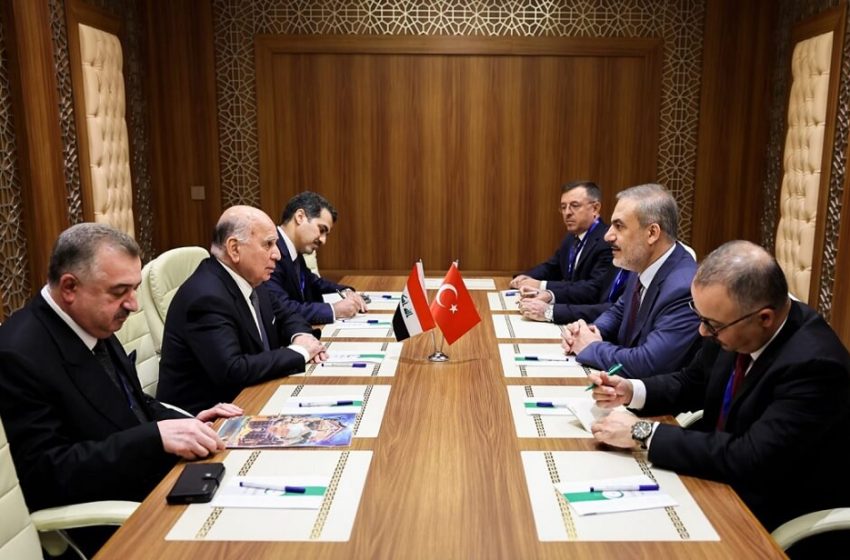Iraqi, Turkish FMs call for urgent action to help the Palestinian people

The Iraqi Minister of Foreign Affairs, Fuad Hussein, the Turkish Minister of Foreign Affairs, Hakan Fidan, and officials from both sides. Photo: Iraqi Foreign Ministry
Baghdad (IraqiNews.com) – The Iraqi Minister of Foreign Affairs, Fuad Hussein, and his Turkish counterpart, Hakan Fidan, urged for immediate action to help the Palestinian people.
The Iraqi Foreign Ministry mentioned in a statement that Hussein met with the Turkish Foreign Minister in the Saudi city of Jeddah on the sidelines of the extraordinary open-ended meeting of the Executive Committee of the Organization of Islamic Cooperation held at the level of foreign ministers on Wednesday to discuss the ongoing Israeli military aggression against the Palestinian people.
According to the statement, the two officials spoke on the most recent developments in Palestine and the escalating humanitarian crisis in the Gaza Strip.
Hussein reaffirmed Iraq’s stance towards the Palestinian cause and the need to have urgent action taken to support the Palestinian people, who are facing extreme aggression, a complete war crime, and genocide after the Israeli occupying forces deliberately targeted civilians.
The horrific Israeli attack on Al-Mamdani Hospital in Gaza on Tuesday, which left hundreds—mostly women and children—dead or injured, was denounced by the foreign minister of Iraq as a horrible act that broke both international law and humanitarian law.
The Health Ministry in Gaza said that at least 500 people were killed on Tuesday after the Israeli forces targeted the hospital in central Gaza.
Following the attack carried out by Hamas on October 7, Israel established a total blockade of the Gaza Strip and continued heartless bombing, pushing almost half of Gaza’s 2.3 million population from their homes and leading to a humanitarian catastrophe as food, fuel, and water supplies are critically low.
